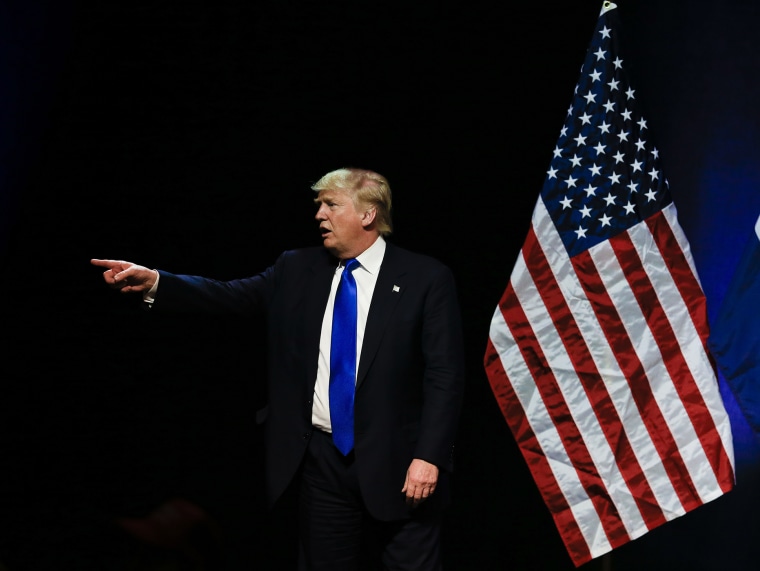Donald Trump's opponents in Republican politics have faced a fair amount of criticism in recent months for their tepid efforts to derail the frontrunner for the party's presidential nomination, but the anti-Trump campaign does exist. The intra-party division is real and Trump's GOP opponents have made meaningful investments in the campaign against him.
To date, those efforts have come up short. The question now is what they intend to do about it.
Politico reported yesterday on two separate gatherings -- one in D.C., another in Florida -- of prominent Republican activists who still hope to deny Trump the party's nomination. In the nation's capital, partisans described their approach as "resolute" -- even if it means launching a third-party campaign against the party's ticket.
But to appreciate where things stand, consider this assessment from Quin Hillyer, a conservative columnist who talked to Politico about the participants' attitudes from the D.C. meeting.
Hillyer said the focus of the D.C. meeting remained beating Trump within the Republican Party apparatus, not mounting an independent bid. "The consensus was that we need a unity ticket of some sort and we'll let the candidates work out who the unity ticket is," he said. "Obviously, more conservatives seem to prefer [Texas Sen. Ted Cruz] to [Ohio Gov. John Kasich], and Cruz has more delegates right now, so if you do the math, it's probably more likely to be Cruz-Kasich." But he went on to say that the unity ticket possibilities, and support for that ticket, should include both current and former candidates.
I see. So as of yesterday, the plan may include Cruz, but maybe not, and perhaps Kasich, but not necessarily, and quite possibly both or neither of them -- probably while working within the Republican Party's existing structure, but maybe outside of it.
There was a "consensus" at the gathering about the need for a "unity ticket," but it seems as if those involved with the anti-Trump campaign cannot yet say with any confidence who would be on that ticket, or when such a pairing might come together.
Not to put too fine a point on this, but 27 states have already held their nominating contests, and Trump has won 20 of them. Depending on how one looks at the delegate totals and the upcoming primaries and caucuses, the GOP frontrunner will either cross the 1,237 threshold before the convention or he'll come quite close.
The sincerity of the anti-Trump campaign is not in doubt, but it's nevertheless clear that their blueprint for the coming months is, at best, incomplete.
To succeed, they'll need to build on yesterday's "consensus" very quickly because Trump isn't their only foe: the calendar is an even more imposing obstacle.
